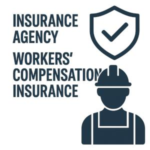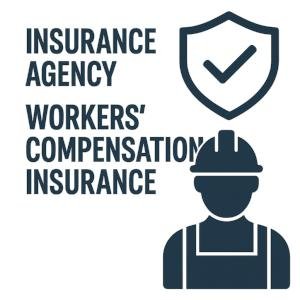in the dynamic landscape of Georgia’s labor market,employment agencies play a pivotal role in bridging workforce demands with qualified talent. however, navigating the regulatory framework surrounding workers’ compensation is critical for thes agencies to maintain compliance and protect both thier employees and clients. This article provides a comprehensive overview of Georgia workers’ compensation requirements specifically tailored for employment agencies, outlining the legal obligations, coverage mandates, and best practices essential for minimizing risk and ensuring operational continuity in this sector.
Table of Contents
Understanding Workers’ Compensation Coverage Obligations for Employment Agencies in Georgia
Employment agencies operating in Georgia must navigate a complex landscape when it comes to workers’ compensation coverage. Unlike conventional employers, these agencies often have dual responsibilities-covering both their direct employees and the temporary or contract workers they place with client companies. Georgia law mandates that agencies carry separate workers’ compensation insurance policies to address these distinct worker groups, ensuring comprehensive protection against workplace injuries. Failure to comply not only exposes the agency to legal penalties but also risks significant financial liabilities.
Key compliance obligations for employment agencies in Georgia include:
- Securing separate workers’ compensation policies for agency-employed staff and placed workers.
- Maintaining accurate employee classification to avoid misapplication of coverage requirements.
- Providing timely injury reporting and claims management to mitigate risks and support workers’ recovery.
- Demonstrating proof of coverage to client companies when placing temporary workers.
| Worker Type |
Coverage duty |
Policy Requirement |
| Direct Employees |
Employment Agency |
Separate workers’ comp policy |
| Temporary/Contract Workers |
Employment Agency & Client |
Joint coverage or contractual agreement |
Key Compliance Challenges Faced by Employment Agencies Under Georgia Workers’ Compensation Law
Navigating the intricacies of Georgia’s workers’ compensation law poses several compliance challenges for employment agencies.One primary hurdle is accurately classifying the employment status of temporary or contract workers,as misclassification can lead to significant penalties. Agencies must also ensure timely and correct reporting of payroll data to maintain proper premium calculations.Failure to keep documentation up-to-date or misunderstanding risk classifications frequently enough results in audits or costly disputes with insurers. furthermore, agencies bear the responsibility of communicating workers’ comp obligations clearly to both clients and employees, wich requires ongoing training and policy reinforcement.
Another challenge lies in managing the cost implications of premium adjustments, especially when client businesses experience fluctuating workforce sizes. Employment agencies must maintain robust systems to track and separate payroll accurately across multiple clients to avoid cross-contamination of claims and ensure equitable premium distribution. Additionally, coordination between the agency’s insurance coverage and the client’s own workers’ comp policies can become complex, demanding precise contractual agreements to outline liability and coverage scope. Key compliance factors include:
- Proper classification of employees and autonomous contractors
- Comprehensive payroll reporting aligned with actual labor usage
- Clear communication of coverage details to all parties involved
- Continuous compliance monitoring to address changes in workforce or legislation
Strategies for Effective Risk Management and Claims Handling for Georgia Employment Agencies
To navigate the complexities of managing risks and workers’ compensation claims, employment agencies in Georgia must implement comprehensive strategies tailored to both regulatory compliance and operational efficiency. Begin with a proactive approach to risk assessment by regularly evaluating workplace hazards unique to temporary and contract workers. Establish clear communication channels between agency staff, client employers, and injured workers to ensure swift reporting and efficient claims processing. Employing a centralized claims management system can streamline documentation and tracking, reducing administrative delays and supporting timely decision-making.
Key components of an effective risk management and claims handling strategy include:
- Thorough training programs for agency employees and clients on accident prevention and workers’ compensation policies.
- Regular audits of insurance coverage and claims to identify trends and address recurring issues.
- Collaboration with legal and insurance experts to stay current on Georgia-specific legislative changes and case law.
- Clear return-to-work policies to facilitate injured employees’ rehabilitation and minimize downtime.
| Strategy Element |
Benefit |
Implementation Tip |
| Risk Assessments |
Identify potential hazards early |
Use digital checklists for frequent site reviews |
| Training Programs |
Reduce workplace accidents |
Customize sessions per client industry |
| Claims Tracking System |
Improve claim resolution speed |
Integrate with payroll and HR platforms |
Best Practices for Maintaining Compliance and Protecting Temporary Workforce in Georgia
To ensure adherence to Georgia’s workers’ compensation requirements, employment agencies must implement robust protocols that address both legal compliance and the safety of temporary workers. Begin by conducting thorough due diligence when onboarding clients and temporary employees, verifying their coverage status and employment terms. It is indeed crucial to maintain clear communication channels between the agency, the temporary worker, and the client employer to accurately allocate responsibility for workers’ comp coverage. Agencies shoudl also invest in regular training for staff and temp workers, emphasizing injury prevention, reporting procedures, and the specific obligations of each party involved.
Key strategies to maintain compliance and workforce protection include:
- Regularly reviewing and updating workers’ compensation insurance policies to reflect changes in workforce size or client contracts
- Implementing a comprehensive incident reporting system that ensures timely and accurate documentation of workplace injuries
- Collaborating with legal and risk management experts to stay current on state law amendments and regulatory updates
- Developing return-to-work programs tailored for temporary employees to facilitate smooth reintegration post-injury
| Compliance Area |
Best Practice |
Benefit |
| Insurance Coverage |
Annual policy review and audit |
Prevents coverage gaps |
| Incident Reporting |
Digital tracking system |
Improves claim accuracy |
| training |
Mandatory safety training sessions |
Reduces workplace injuries |
| Legal Compliance |
Scheduled legal consultations |
Mitigates regulatory risk |
Q&A
Q&A: Georgia Workers’ Compensation Requirements for Employment Agencies
Q1: What are the basic workers’ compensation requirements for employment agencies in Georgia?
A1: In Georgia, employment agencies are required to carry workers’ compensation insurance for all employees they hire. This coverage must comply with the Georgia Workers’ Compensation Act, providing benefits for work-related injuries or illnesses. The agency is responsible for ensuring coverage whether employees work on-site or are placed with client employers.
Q2: Are employment agencies in Georgia mandated to provide workers’ compensation for temporary or contract staff?
A2: Yes.Employment agencies must secure workers’ compensation insurance for all temporary and contract workers classified as their employees. This ensures that workers placed at client sites remain covered by the agency’s policy, protecting both the workers and the agency from liability.
Q3: How can employment agencies verify compliance with workers’ compensation requirements?
A3: Employment agencies should maintain thorough documentation, including policies, certificates of insurance, and agreements with clients clarifying coverage responsibilities. Regular audits and communication with insurance providers can help confirm compliance with Georgia law.
Q4: What are the penalties for failure to comply with Georgia’s workers’ compensation requirements for employment agencies?
A4: Noncompliance can result in significant legal and financial penalties, including fines imposed by the georgia State Board of Workers’ Compensation, potential lawsuits from injured workers, and liability for medical expenses and lost wages. It can also jeopardize the agency’s license to operate.
Q5: Can employment agencies transfer workers’ compensation responsibilities to client companies in Georgia?
A5: While some contractual arrangements may allocate responsibilities, Georgia law generally requires the employment agency to maintain workers’ compensation coverage for their employees. Agencies should clearly specify coverage terms in contracts but cannot fully transfer statutory obligations to clients without risking noncompliance.
Q6: What steps should employment agencies take to ensure proper workers’ compensation coverage in Georgia?
A6: Agencies should:
- Obtain workers’ compensation insurance that covers all employees, including temporary and contract workers.
- Verify client companies’ insurance status when placing workers on-site.
- clearly define coverage responsibilities in written agreements with clients.
- Educate staff and clients on workers’ compensation obligations and procedures.
- Monitor legislative updates related to workers’ compensation to remain compliant.
Q7: are there any exemptions to workers’ compensation requirements for employment agencies in Georgia?
A7: Georgia law provides limited exemptions, typically related to very small employers or specific job classifications. However, employment agencies placing workers generally must comply without exception. It is advisable to consult legal counsel or the Georgia State Board of Workers’ Compensation for guidance on specific cases.
This Q&A aims to provide a concise overview of the critical workers’ compensation requirements impacting employment agencies operating in Georgia,ensuring clear understanding and compliance.
Future outlook
compliance with Georgia’s workers’ compensation requirements is essential for employment agencies to mitigate risk and maintain operational integrity. Understanding the specific obligations under state law not only protects agencies from potential liabilities but also ensures the well-being of the workforce they place. By implementing robust workers’ compensation policies and maintaining clear communication with both clients and employees, employment agencies can foster a secure and legally compliant environment conducive to long-term success. Staying informed and proactive in this area is a strategic imperative for any agency operating within Georgia’s dynamic employment landscape.
“This content was generated with the assistance of artificial intelligence. While we strive for accuracy, AI-generated content may not always reflect the most current information or professional advice. Users are encouraged to independently verify critical information and, where appropriate, consult with qualified professionals, lawyers, state statutes and regulations & NCCI rules & manuals before making decisions based on this content.









